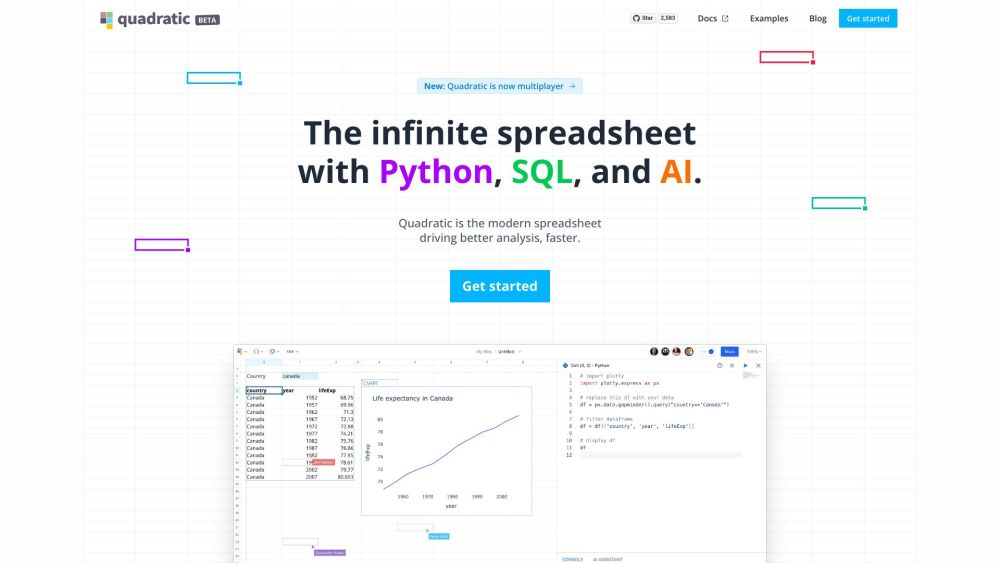Enhancing Real-World Simulations with AI: BeyondMath’s Breakthrough Approach
Simulating the real world poses a significant challenge, especially when aiming for a high level of accuracy. Traditional methods have hindered design teams in the automotive and aerospace industries, but BeyondMath is revolutionizing this field by harnessing AI for a new approach to simulation, potentially saving companies precious time in their design processes.
“Unlike language, where mathematical models do not predict the next word, physics operates under established models. We've discovered that machine learning excels at computations beyond mere pattern recognition,” explains co-founder Darren Garvey.
BeyondMath is initially focusing on computational fluid dynamics (CFD), a field as old as computing itself. The equations that describe how objects move through air or water are notoriously intricate. Although predictions of airflow over a wing have improved, the process remains computationally intensive, requiring supercomputers and GPU clusters that limit accessibility.
Consequently, industries such as automotive, aviation, and marine design endure prolonged wait times in their development cycles. “Designers invest considerable thought into potential solutions, run simulations, and often return the next day to discover the results. Either they meet expectations or they don’t, requiring several iterations. Then they head to the wind tunnel, which may yield inconsistent results with prior simulations,” Garvey noted.
BeyondMath aims to expedite the digital design aspect, shortening the time it takes for engineers to evaluate concepts. “Imagine a scenario where a designer contemplates a change for improved fuel efficiency. If they have six months to develop a plane part and simulations are lengthy, they may only get 20 attempts. However, if results come within seconds or minutes, they could potentially explore millions of variations within the same timeframe,” said Garvey.
A key innovation from BeyondMath is its "digital wind tunnel," enabling near-real-time simulations of airflow over intricate surfaces, delivering results that would typically require hundreds of times longer to compute. Previous scientific literature has demonstrated that machine learning can approximate complex systems like weather patterns significantly faster, but BeyondMath faces unique challenges in the lack of available simulation data.
“There simply isn't a robust dataset like the vast resources available for training large language models. Our challenge is to create solutions that designers can use on complex geometries as a startup,” Garvey explained.
Interestingly, their solution does not rely on traditional simulations. Instead, they created a model that comprehends both the theoretical principles of wind tunnels and their real-world behaviors. “We aim to approximate reality rather than simply replicate simulations,” noted Garvey. “Incorporating real-world data is essential.”
Once the model gains insight into how a system operates, it becomes an active contributor to design—a direction already being explored in other engineering fields. Garvey draws a parallel with image understanding: once machine learning models effectively analyze images, it becomes a natural progression for them to create new ones.
Formula 1 racing is among BeyondMath’s initial target markets, with certain teams considering the software to enhance their aerodynamic and vehicle design processes. “F1 teams frequently utilize CFD and are quick to embrace new technologies. We're collaborating with a few teams to identify their core challenges, and we’re close to developing a platform that will enhance their car performance,” Garvey shared.
BeyondMath is optimistic, with hopes (though no guarantees) that within six months, they can demonstrate tangible benefits from their models as they transition from research and prototypes to impactful applications.
Recent investment news bodes well for the company's progress: BeyondMath has secured an impressive $8.5 million seed round, led by UP.Partners, with contributions from Insight Partners and InMotion Ventures. The funding will allow the startup to expand its workforce and scale its computational capabilities, including purchasing Nvidia DGX 200 units while collaborating with Nvidia to explore this innovative application of their powerful hardware.
Despite the lucrative nature of F1 racing as a customer, BeyondMath is already eyeing future expansion. "We’re achieving significant success with our current customers in design, but transitioning to a more generalized application will be a journey,” Garvey remarked. “A model proficient in understanding cars won’t automatically grasp the dynamics of planes or biological systems. This is part of the classic startup journey—finding traction with top-tier clients to bootstrap the company's growth.”




